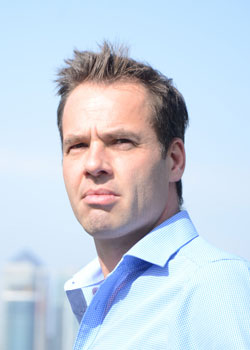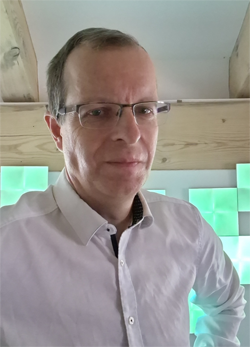.png)
The aim of the workshop is to convey knowledge about effective and useful modelling of requirements. You will gain a deeper understanding of how to apply modelling techniques to facilitate better communication, manage system complexity and enable a greater degree of automation in system development activities.
Understand basic principles of Requirements Modelling
Gain ability to use context modelling, to include the use of system boundaries, context boundaries and context diagrams.
Apply the information structure view in requirements modelling, including UML class diagrams, class attributes, data types, binary association, aggregation, composition, generalisation and specialisation.
Apply dynamic views and scenario modelling in requirements modelling inlcuding use case, use case diagram, use case model, data flow, control flow, object flow, data flow diagram, use case specification, activity diagram, function activity, action, state, state machine, event, hierarchisation, and concurrency.
Systems Engineers
Requirements Engineers
Project Managers
Business Analysts
Product Designers and Developers
Integration, Verification & Validation Engineers
Early Bird: 1,620 CHF; Regular: 1,800 CHF
3 tage

Marco has had many roles in Systems Engineering: Professor at a technical university, and Consultant for and Employee in the development of complex systems. He was the managing director of projectglobe - a boutique consultancy firm specialising in Model Based Systems Engineering (MBSE) and Information Management (IM) to support innovation driven engineering projects. Major customers are the fusion research community, the automotive industry, and 3D laser-welding and robotics companies.
Marco holds a PhD in nuclear engineering and a Masters in Operational Research. In his role as research fellow at Europe's largest fusion laboratory, JET near Oxford, he devised a novel diagnostic system, which earned him a world-wide patent. Marco then worked for the automotive industry managing product development and launch projects for the emerging markets of Eastern Europe and Russia before co-founding projectglobe with the purpose to devise novel methodologies, frameworks and tools that combine MBSE with IM to enable effective innovation and product development.
Together with partners from industry and academia, projectglobe have developed CLOSE - a Closed-Loop MBSE methodology based on robust semantic reference model. This model allows to automatically generate the required engineering artefacts in the correct format for SE teams and domain experts alike. The loop is closed by so-called "Experimentable" Digital Twins that provide in-the-loop feedback for all developers throughout the whole product life cycle. CLOSE runs on projectglobe's fractal data engine and thus allows for unlimited scalability in managing all project information.




Oliver Fels has been the first independent European speaker at the 1997 JAVAOne conference and the first independent to speak three years in a row.
Since then, Oliver Fels has been working in major industries developing complex systems, filling various roles - as a project manager, department lead, systems engineer, architect, product owner, requirements and methodology engineer, and more.
As a leading systems engineer, he supported revolutionize the Zürich public transport system, being responsible for the new passenger information concept.
In a department lead role, he redesigned hands-on the first and business class sections for the 21st century of various international airlines.
With his high interest for sustainability and renewable energy, Oliver was also an active member of the Solar Impulse 2 project, the first solar flight around the world accomplished by Swiss entrepeneur and pioneer Bertrand Piccard.
Oliver is currently actively supporting sustainability and renewable energy projects using blockchain technology and is the inventor of the sustainability engineering methodology, which uses system engineering principles to aid enterprises structuring their sustainability strategies.
Oliver has held several speeches and international workshops in the area of systems engineering, IT security, and software development as well as coached engineers in leadership, requirements engineering, and other topics.
Having worked in various diversity environments, he highly emphasizes an intercultural and interoperational approach to working with people in which individualtiy and empathy are highly valued. As such, bringing his broad expertise to a wider audience is an important passion for him.
Oliver holds an egineering degree in computer science and electrical engineering.

